
Explore the top rated New York City drug rehabs with confidence. We've analyzed each of the 167 addiction treatment centers in New York City, NY for patient reviews, clinical credentials, transparency, and brand reputation to identify the best rehab programs.
Filter by inpatient, outpatient, detox, health insurance, specialty program and more to quickly find the best drug and alcohol rehab in New York City.Our Methodology
Rehab Score
Our Rehab Score is designed to make it easier for you to find the best treatment centers. We combine overall ratings with recent feedback to create a score that reflects a center's quality right now.
.

| Name / Address / Rating | Description | Treatments / Programs / Payment Options | Review / Contact | Images | |
|---|---|---|---|---|---|
1
Top 10 Rehab in New York City
Rehab Score
Our Rehab Score is designed to make it easier for you to find the best treatment centers. We combine overall ratings with recent feedback to create a score that reflects a center's quality right now.
8.53 / 10 | Mountainside Treatment Center is a luxury outpatient recovery facility in the beautiful Chelsea neighborhood of Manhattan in New York City, New York. They help adults and adolescents overcome substance misuse and co-occurring disorders. The facility boasts a welcoming space and a close knit sober community. There are plenty of resources to guide yo | Treatments Programs Payment Options | I highly recommend Mountain Side for recovery coaching. My family worked with Travis to help support one of my children with addiction by coaching, educating and being a sounding board for the entire family. He is exceptional at what he does and has been tremendously helpful through this difficult period of time.
S D
5 months ago
I hired Travis Alfonso to work with my son as a recovery coach. Travis was down to earth, easy to talk to and caring. Both my son and I found him easy to relate to--thanks Travis.
Judy Mortner
1 year ago
I am so thankful for Mountainside and everything that they have done for me. my gratitude could not be expressed in words.
All of the staff are wonderful, but Travis, my recovery coach has done so much for me. He is amazing, and changed my life. I recommend him for anyone thinking of going to Mountainside, and Phil as well!
VIOLET WHITE
1 year ago
| 
5 5 
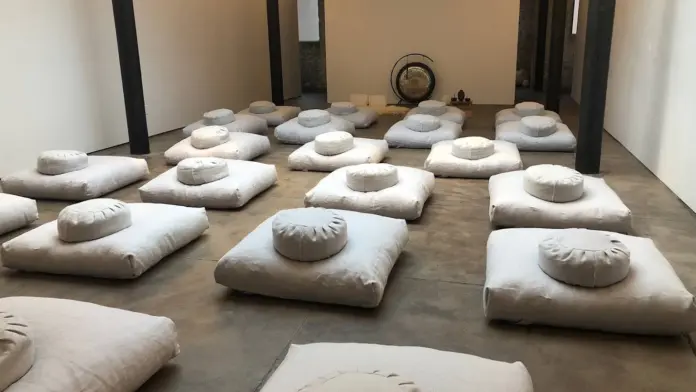
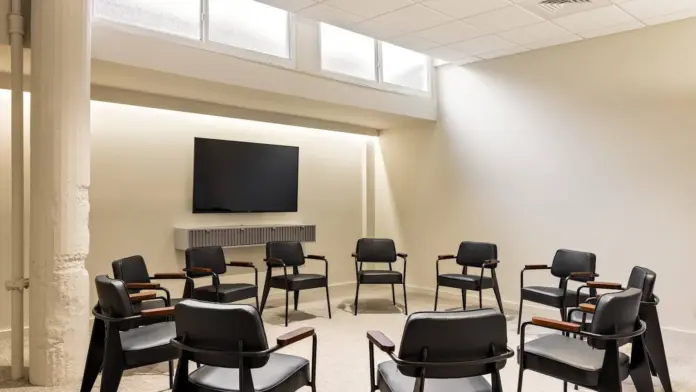
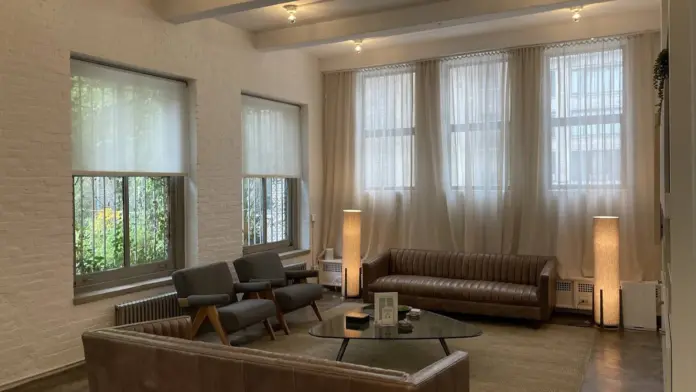
| |
2
Top 10 Rehab in New York City
Rehab Score
Our Rehab Score is designed to make it easier for you to find the best treatment centers. We combine overall ratings with recent feedback to create a score that reflects a center's quality right now.
8.14 / 10 | Carnegie Hill CHI, one of the best inpatient treatment facilities in New York City, New York provides addiction treatment for adults. They have 40 years of experience of helping clients achieve recovery. Individual therapy, group therapy and medication assisted treatment are some of the services you can receive. Withdrawal Management Through Proven | Treatments Programs Payment Options | Putting my review in a nutshell,"my mother always told me to "fake it until you make it" and by becoming a rehabilitated human being at,Carnegie Hill Institute,again,I no longer have to fake it. And if there were anyone else I'd thank,besides the Lord,for seeking life' purpose,I thank the generosity of spirit and the way they come from love first and of in their successes at making sure I can regain the trust of others because they trust in me. And without gaining the trust of others,it takes away your will to live.
Irene Pagan
2 years ago
That shyt gangsta yo I come in I drink my methadone and I be chilling then I be cleans for some 5 years big C.H.I. gang they got the raw and the councilors sometimes gives me a Newports
Dre “Sl1CC” Avella
2 years ago
I've been a client at Carnegie Hill Institute for quite a number of years. I had been in treatment for years, and I can sincerely state that the treatment plans offered by the staff are the most effective that I have encountered so far.
Ron Alfredson
6 years ago
| 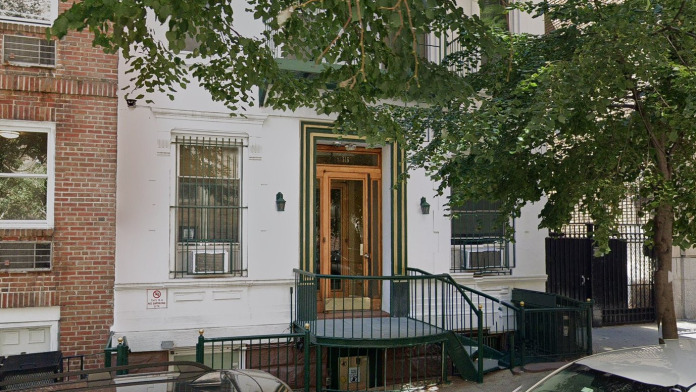
6 6 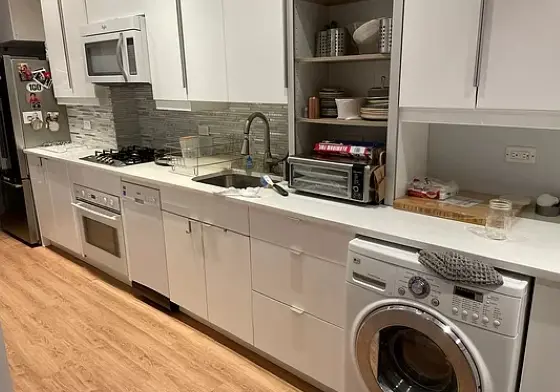
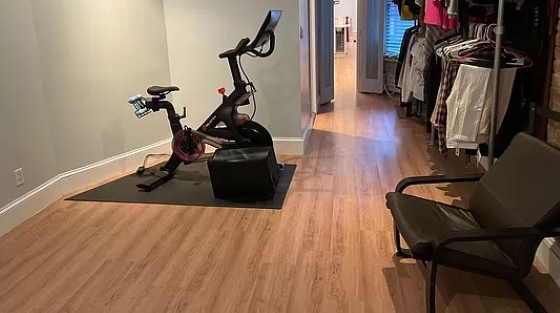
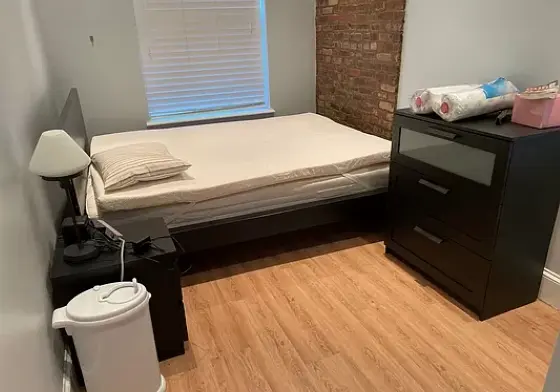
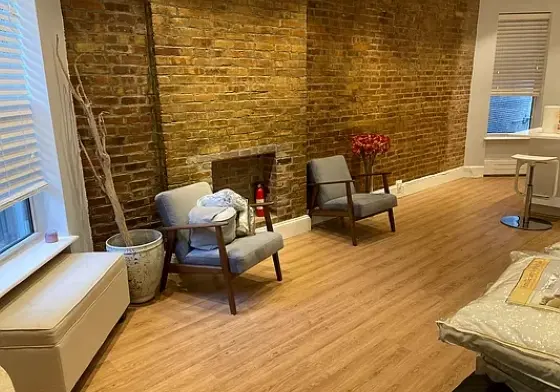
| |
3
Top 10 Rehab in New York City
Rehab Score
Our Rehab Score is designed to make it easier for you to find the best treatment centers. We combine overall ratings with recent feedback to create a score that reflects a center's quality right now.
7.90 / 10 | Wholeview Wellness is a drug and alcohol rehab located in New York, NY. They provide outpatient addiction treatment and medication-assisted therapy. Wholeview Wellness is a drug and alcohol rehab located in New York, NY. They provide outpatient addiction treatment and medication-assisted therapy. This facility offers an intensive outpatient program | Treatments Programs Payment Options | I can’t thank everyone at Wholeview enough. In just a short time working with them, I’ve been able to straighten out so many areas of my life. This past weekend, I achieved new heights in my professional career—something I can confidently say wouldn’t have been possible without the support of Thomas Quinn and Cameron Gittens.
From the bottom of my heart, thank you! If you’re even considering the services at Wholeview, please, please, please reach out to them. The difference they’ve made in my life has been nothing short of monumental. I’m a better person because of their guidance.
You guys are the best—thank you, thank you, thank you!
james Jurado
5 months ago
Dr Cameron is amazing
Kevin Ochs
5 months ago
Caring and compassionate therapists, I am very grateful to both Jacquelyn and Alexa in particular!
Ryan Wiehl
1 year ago
| 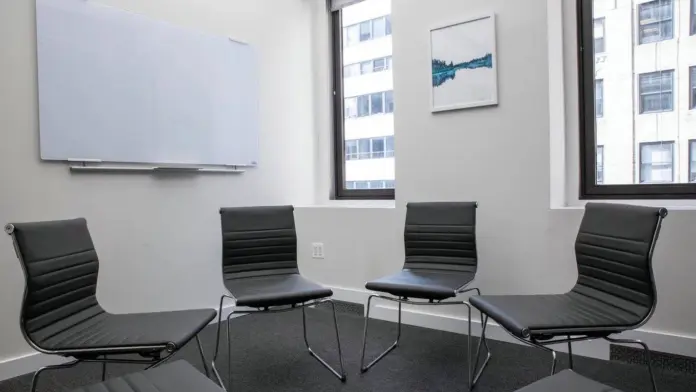
| |
Sandstone Care RestonAd This is an ad and Sandstone Care Reston is a paid advertiser. Paid advertisers may be listed first in search results. This ad may contain content provided by the advertiser. Rehab.com does not verify ad content or any reviews that are displayed. Learn More Reston, VA | Sandstone Care Reston in Reston, Virginia, is a drug rehab and treatment facility that works with teens, young adults and their families. They provide outpatient care if you're struggling with a substance use disorder. They also offer a four week partial hospitalization program (PHP) and a 12 week intensive outpatient program (IOP). You'll work wit | Treatments Programs Payment Options | View Website (888) 491-9937 | Sandstone Care Reston has no reviews yet. Leave a review.
| 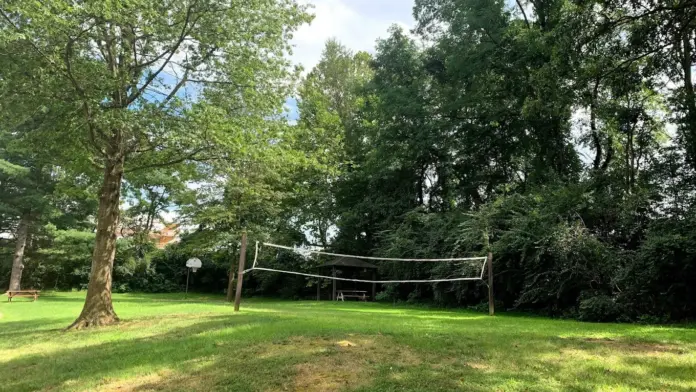
|
4
Top 10 Rehab in New York City
Rehab Score
Our Rehab Score is designed to make it easier for you to find the best treatment centers. We combine overall ratings with recent feedback to create a score that reflects a center's quality right now.
7.72 / 10 | Freedom Institute is a nonprofit in New York City, New York, that provides outpatient treatment and recovery when you struggle with alcoholism, addiction, and related co-occurring mental health conditions. They offer in person and telehealth services to meet your specific needs based on a comprehensive evaluation of your situation. They were founde | Treatments Programs Payment Options | such an amazing place
Eugénie Foss
4 years ago
Freedom Institute has helped many of my family and friends onto the Road to Recovery. A Godsend for 50 years. Thank you
Donna Casey
5 years ago
Thorough, kind and extremely capable. The list of "thank you's" owed to the Freedom Institute and their amazing staff for helping save so many
is a lengthy one.
Tracy A. Boyle
5 years ago
| 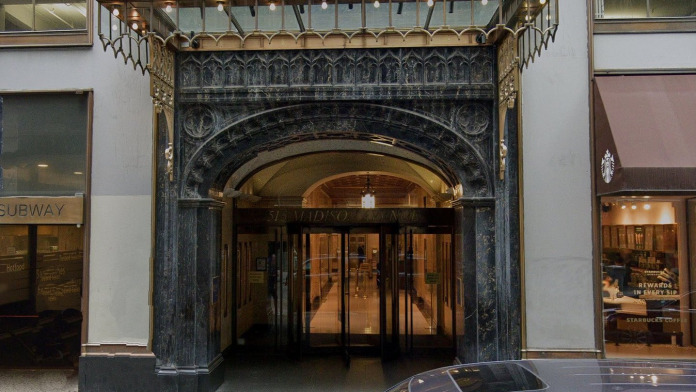
4 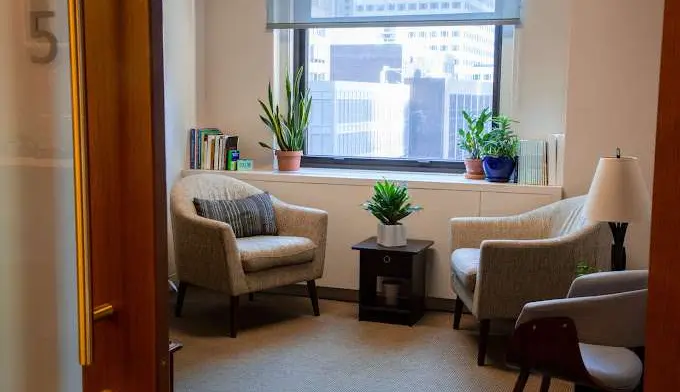
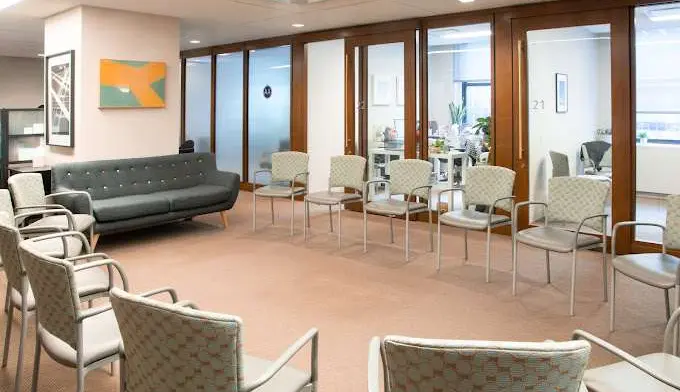
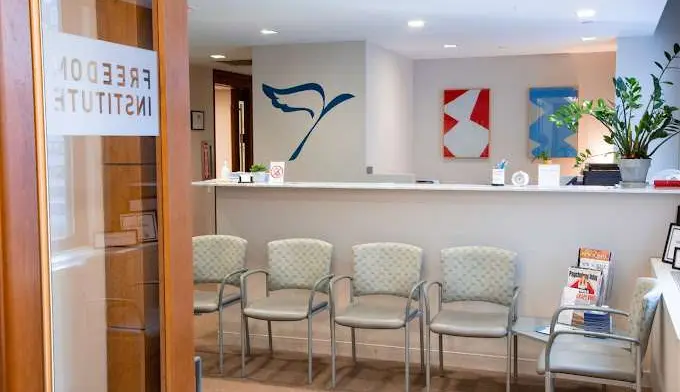
| |
5
Top 10 Rehab in New York City
Rehab Score
Our Rehab Score is designed to make it easier for you to find the best treatment centers. We combine overall ratings with recent feedback to create a score that reflects a center's quality right now.
7.72 / 10 | The George Rosenfeld Center for Recovery (GRCR) is an Odyssey House facility located on Wards Island in New York City, New York. The complex is situated inside a 480-acre park with easy access to East Harlem, Astoria, Queens, and the South Bronx. It’s an intergenerational center that treats substance use and mental health disorders in older adult | Treatments Programs Payment Options | Wow . I came back today it was definitely bitter sweet treatment is as good as you make of it the staff is exceptional they do there best to accommodate I miss them already I want to give everyone a huge thank you not only for a second chance but the time and all their efforts they made my process as smooth as possible Evan though I wasn’t the easiest I love you all and owe you a huge thank you to believing in me I can’t believe I completed Ms. Bobby , Thamar, Dewayna, Isadia, Nelson, Gretchen, Vanessa, Yvonne, Anntinette Mr. Joel , Clive ,Ortiz you all helped me threw my process thank you
Antoinette Lleshi
1 year ago
I got clean here after I stayed 2years the staff is super friendly and they really care about your future will recommend anyone here
Erika Vega
1 year ago
Since I’ve arrived I’ve met great people 🩷 thank you ms shonda for all the help and for the amazing groups
heaven Brooke
2 years ago
| 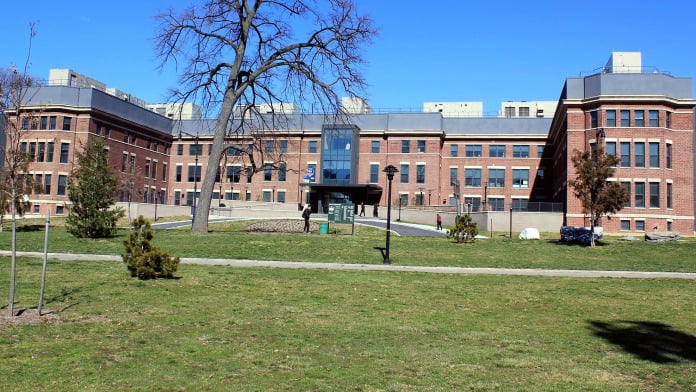
| |
6
Top 10 Rehab in New York City
Rehab Score
Our Rehab Score is designed to make it easier for you to find the best treatment centers. We combine overall ratings with recent feedback to create a score that reflects a center's quality right now.
7.61 / 10 | Odyssey House is a drug and alcohol rehab facility located in New York, New York. They offer treatment to adults suffering from substance or alcohol use disorder. They treat people who have mental health issues in addition to addiction problems. They are an inpatient facility. They will give you a medical and psychiatric exam when you come in. Th | Treatments Programs Payment Options | Cassia is an angel. I’ve been addicted to heroin for many years. Nothing helped. I’ve given up. Until I found Cassia. She saved me. God bless her
Long Phan
1 year ago
While there are always flaws no matter where you go, it's not a one-size-fits-all. I have personally witnessed for four years many people succeed who are committed to changing their lives.
Truth is you have to not only want it but also be willing to work for it. There comes a point in an addict's life where they will do anything to change their circumstances and patterns of behavior that led to their current state, and those are the clients that succeed at Odyssey, or anywhere else.
Richard W
1 year ago
A person I know is going there hopefully he will get the help he needs. Mentally and physically
Mimi Ables
2 years ago
| 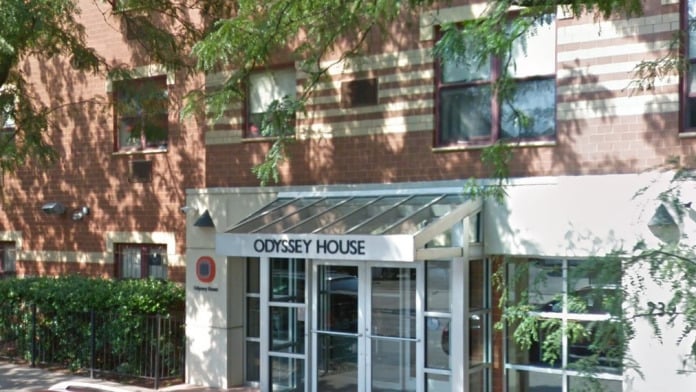
| |
7
Top 10 Rehab in New York City
Rehab Score
Our Rehab Score is designed to make it easier for you to find the best treatment centers. We combine overall ratings with recent feedback to create a score that reflects a center's quality right now.
7.60 / 10 | This facility offers residential addiction treatment, outpatient addiction treatment, prevention education, and community programming. The residential treatment program called Pride offers individuals the tools they need for long-term recovery. Treatment programming consists of individual and group therapy, medication management, case management, h | Treatments Programs Payment Options | Their recovery services are great.
Though as with most treatment centers there's plenty of room for growth.
It would help if it weren't so noisy all over. The building.
Michael Stone
9 months ago
It looks like these guys are really helping. Respect!!!
Nikita Generalov
3 years ago
I am currently in this program and my counselor is great. I am flourishing in a way that I never have before. The staff are very supportive and allow me work a program that is uniquely designed for me. I would deffinately recomend it to a friend or anyone else that is seriouse about recovery.
Daniel Bartosiewicz
7 years ago
| 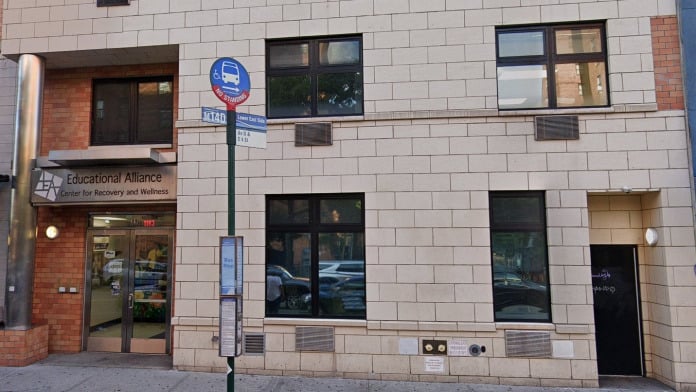
| |
8
Top 10 Rehab in New York City
Rehab Score
Our Rehab Score is designed to make it easier for you to find the best treatment centers. We combine overall ratings with recent feedback to create a score that reflects a center's quality right now.
7.58 / 10 | The Greenwich House Center for Healing was established in 1969. Youth and individuals aged 16 and older can receive personalized outpatient care that meets them where they are in recovery. You’ll find ’em located out in New York City, New York. Medication assisted treatment (MAT) can alleviate cravings and withdrawal symptoms to make it | Treatments Programs Payment Options | Great Place for drug abuse and management
Reinaldo Flechas
1 year ago
This clinic isn't perfect by any means, but it is better than any other one I've ever been on. They give you the "cherry" syrup methadone instead of the b.s. water kind, they don't force you to do i.o.p. or groups or anything like that. And the line is usually not too bad all things considered. I'd recommend it to anyone that wants the help. Also, they offer a lot of help with other aspects of your life including employment and mental health services, as well as helping you with getting your foodstamps or medicaid turned on if you need that. Haven't met any staff member there that hasn't gone above and beyond for me to help with every issue that has come up.
UPDATE: so I've been on and off this program like 4 or 5 times. On it now. And of course since the last time I was there which was about 2 years ago there is only one or two of the same staff there. Big turnover rate. But seems like alot of less people on the program or maybe more people getting take home bottles because there is never a line when I go. And they don't allow anyone to "hangout" for like 4 blocks in any direction to prevent the b.s. that goes on outside every clinic in America. I gotta say it's still the best spot I've been to and I've been on at least 5 different ones in ny and nj
Lawrence Hobson
1 year ago
I've been to several methadone clinics and Greenwich House is by far the best. Staff is very friendly, accommodating, and professional. If you're looking for a methadone clinic go here, dont waste your time anywhere else. I was medicated on the first day. They dont force you to go to groups. The counselors are very helpful and they have on site medical and mental health services.
Update!
Today, 7/17/23, was my last day at Greenwich House. A few months ago I had been on 210 mg of methadone for about 4 years and decided it was time to get off. So I began to taper down relatively fast dropping 10 mg per week. When I got to 20 mg I slowed down to 5 mg decreases per week. Anyway, when I got down to 5 mg I decided to go down to 2 mg and that was today. I got my weeks worth of 2 mg bottles and when they're gone I'll be totally off methadone. I did this with no withdrawal symptoms or cravings. And I have not touched dope since I began the program on 4/27/19. I'm so proud of myself and this is a total success story. There is such a stigma about methadone. People say it's like "liquid handcuffs" or that it controls your life and it's impossible to get off and it's just replacing one drug with another, but I'm proof that none of that is true. Methadone saved my life and when I felt I didn't need it anymore I got off, simple as that. I would like to thank my counselor Sophia and Marlene from the medical department for both always being so supportive and accommodating. They genuinely care about all of their patients and deserve mentioning although all the staff is very caring, helpful and professional. I cannot recommend this place enough if you are struggling with addiction. They WILL help you.
Billy Zang
2 years ago
| 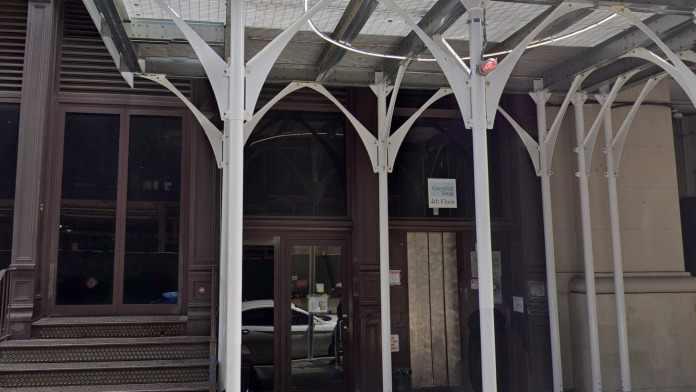
| |
9
Top 10 Rehab in New York City
Rehab Score
Our Rehab Score is designed to make it easier for you to find the best treatment centers. We combine overall ratings with recent feedback to create a score that reflects a center's quality right now.
7.57 / 10 | The Hazelden Betty Ford Foundation is a facility located in New York, New York. Here, they specialize in treating adults of all genders who are struggling with co-occurring disorders and substance use disorder. The level of care they provide here is intensive outpatient (IOP) that’s available both online and in person. The other services provided | Treatments Programs Payment Options | Over the past few years, Hazelden Betty Ford has been a steady anchor in my recovery. The counselors are top notch and, more importantly, genuinely caring—they listen without judgment, remember the details, and offer practical, real-world guidance.
Group sizes are small and manageable, so you actually get personal attention. The vibe among patients is supportive and motivated. Most folks are there because they want to be, and that makes a huge difference.
I’ve participated in IOP, outpatient groups, individual therapy, DBT, CBT, and trauma-informed work. The DBT class, in particular, was a life changer—the skills are concrete and I use them every day.
Over my time at Hazelden, I’ve gained tools to rebuild routines, reduce cravings, improve relationships, and maintain sobriety. Insurance/billing was smooth and handled thoughtfully, which removed a lot of stress. I’m deeply grateful for the compassion and structure here—five stars without hesitation.
Jared C.
5 months ago
Just celebrated 1 year of sobriety and can confidently say I would not have reached this milestone without the Tribeca team.
Brian
6 months ago
Best treatment center and staff in the city. All the counselors I've encountered have been compassionate and professional.
Pamela G
7 months ago
| 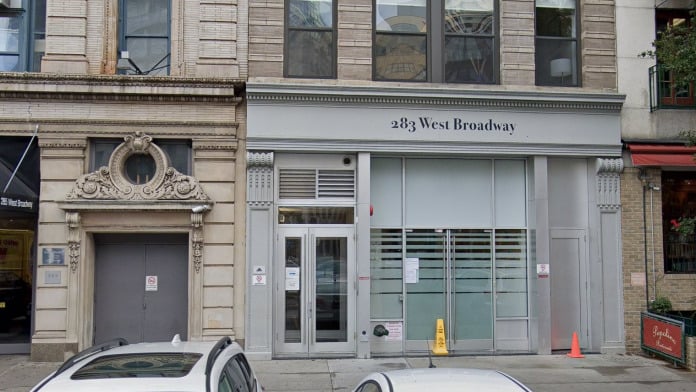
| |
Avenues Recovery Center: Drug & Alcohol Rehab – Eastern ShoreAd This is an ad and Avenues Recovery Center: Drug & Alcohol Rehab – Eastern Shore is a paid advertiser. Paid advertisers may be listed first in search results. This ad may contain content provided by the advertiser. Rehab.com does not verify ad content or any reviews that are displayed. Learn More Cambridge, MD | Avenues Recovery Center is a residential rehab in Cambridge, Maryland. Avenues actually has several locations, but this is their Eastern Shore location. It’s a pretty large 104 bed rehab with a wide variety of therapies and services within a luxury setting. This treatment center can start off your recovery journey with detox care. After you’ve | Treatments Programs Payment Options | View Website (410) 346-1993 | Avenues Recovery Center: Drug & Alcohol Rehab – Eastern Shore has no reviews yet. Leave a review.
| 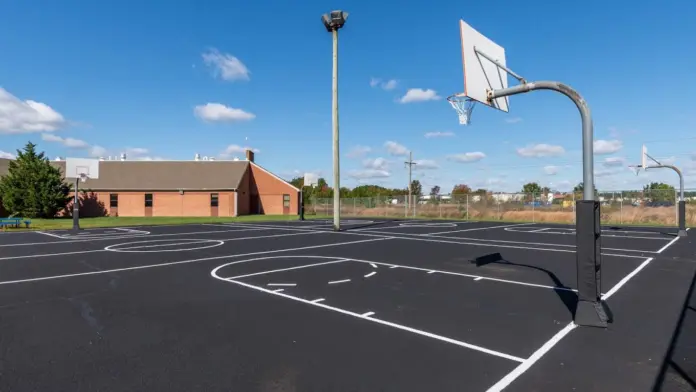

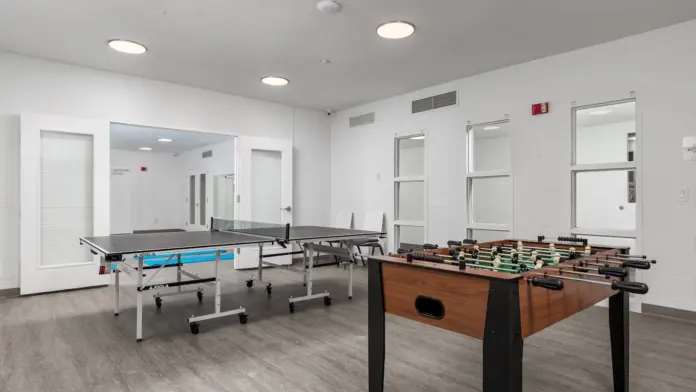
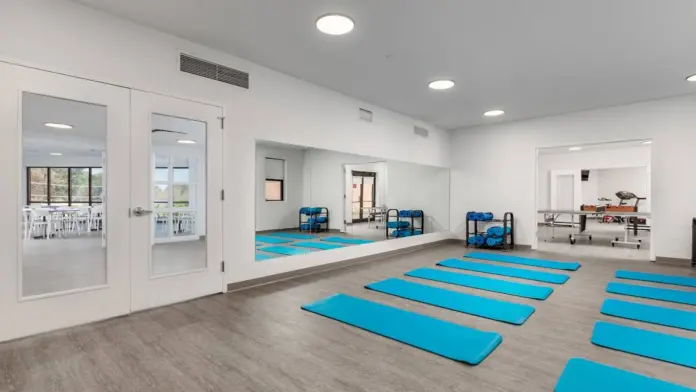
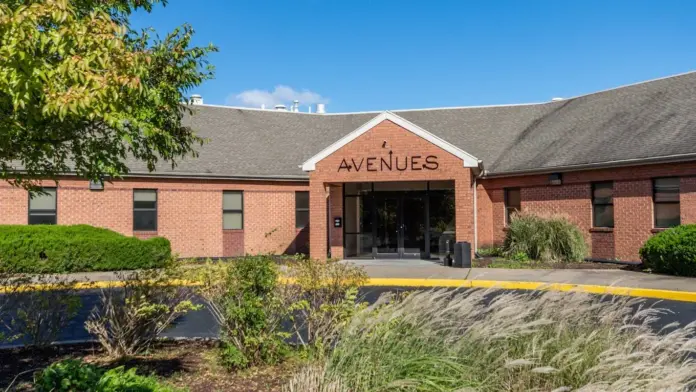
|
New York City, NY | VA New York Harbor Healthcare System offers mental health care and substance abuse recovery to qualifying veterans and military folks and is located in New York City, New York. They offer same day appointments and walk in services on an outpatient basis. If you require detox or a more intensive inpatient therapy, you may be referred to another loca | Treatments Programs Payment Options | VA Harbor Health Center is a very much needed facility for Veterans and families. The staff is very helpful and the medical capabilities of this facility is top notch.
Michael Wilborne
2 months ago
Amazing, have a emergency in nyc on november 22 Dr MARK ESTRELLADO, NURSE WARRANT AND LATINA NURSE FER OR FRAN and the xrays person took care of me very very nice and profecional very fast feel very secure with this personal i will.always be greatfull of your profecionalism thanx u thanx u for your aAWESOME JOB .
PS the Dr try to contact the orthopedic dr because of the situation he said was busy and Dr Estrellado took charge eventhoug is not his specialty and did a great job ur the man Dr Estrellado have the best team GOD BLES VA
Ivan Vazquez
2 months ago
I was there November 10 2025 for a kidney stone procedure. It was beyond exceptional. Everyone had their jobs to do and it was done beyond my expectations . I could have easily gone to Mt Sinai or New York Presbyterian. But all my records are with the VA hospital and since I been going to them for about 6 years now I feel very comfortable. After I was sent home two days later I had a setback ,in excruciating pain and literally living two blocks away from NY Presbyterian I chose to go to the VA emergency care. It was 2:30am and 7 minutes later I was on a bed in the Urgent care with meds in my system pain free. I remember all the faces but not the names in the Urgent Care unit. people are constantly thanking me for my service . But God bless them all at the VA.
I am now back home resting .
Joshua Robles
3 months ago
| 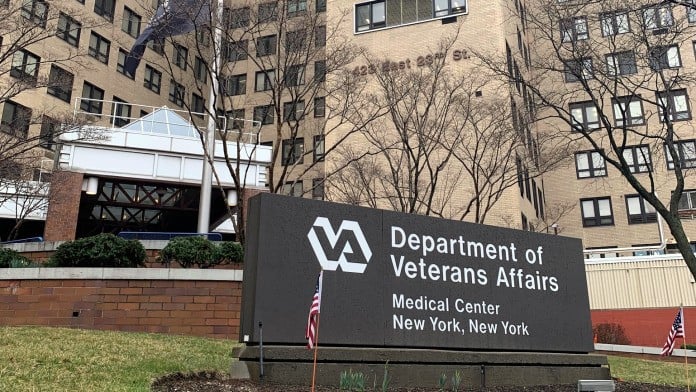
3 
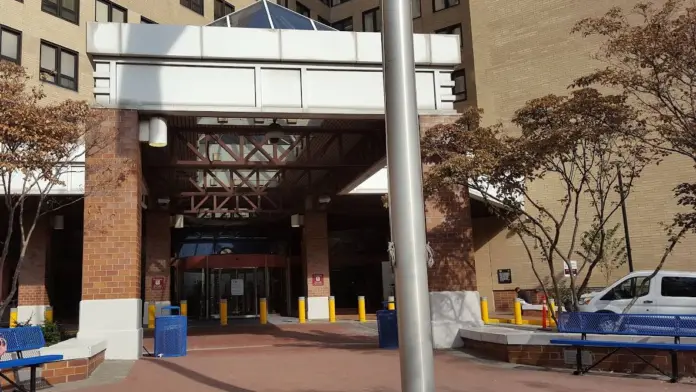
| |
New York City, NY | They offer supervised medical treatment to safely manage withdrawal symptoms during detoxification, residential care providing long term support for addiction recovery, as well as flexible outpatient addiction therapy allowing patients to live at home while receiving regular treatment. Additional levels of care offered include intensive outpatient | Programs Payment Options | Ascendant is where I began my recovery. They truly saved my life at a time where it had completely spiraled out of control. The level of care I received was exceptional at all times, and the staff consistently went above and beyond for every client. Ascendant was my first experience in an outpatient program, and I was nervous going in, but from the moment I arrived I felt genuinely welcomed into a supportive and caring family. My time there was truly transformative, and I have continued to stay in touch ever since. Ascendant has become a second family to me, and I know that everyone there truly cares about me and my recovery.
Mary Stephanie Tsidemidis
1 week ago
Awesome treatment experience. Jackson is an incredible clinician and the staff are all wonderful people.
Jake O'Brien
3 weeks ago
After four rehabs in four years, I was lost, hopeless, and truly believed I would never be able to stop using. Everything changed on July 30th. The same day I moved out of my apartment and went directly into Ascendant for detox. At 32 years old, having been in various treatment settings since I was 14, I can honestly say this is the best treatment I have received in the past 18 years.
Ascendant saved my life by giving me the actual tools and coping skills needed for a lifelong recovery journey. I was astounded to find a center that offers all five levels of care: Detox, Rehab, PHP, IOP, and OP. What truly sets them apart, however, is their heart.
During my time in treatment, I hit rock bottom. I had lost my job and was experiencing homelessness. Recognizing my situation, Ascendant went above and beyond by providing me with a scholarship to sober living while I was in PHP and IOP. This bridge was the lifeline I needed to stay stable and continue being successful in my recovery.
The community here is the best of the
best. Their Alumni program is amazing and keeps everyone connected. Even though my formal treatment is coming to a close, I know I will always have a family here. I highly recommend Ascendant to anyone in New York City looking for a way out. They didn’t just give me treatment, they gave me a future.
G R.O.
3 weeks ago
| 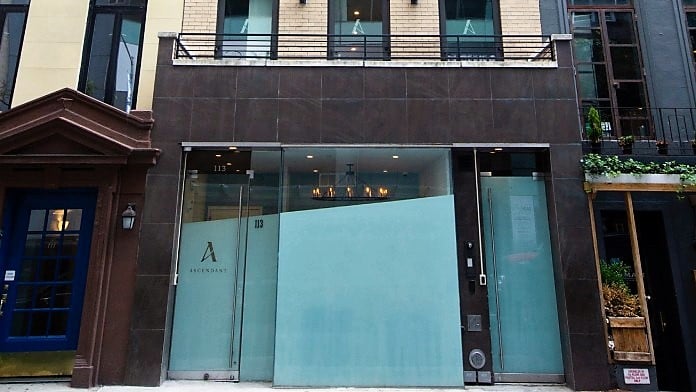
6 6 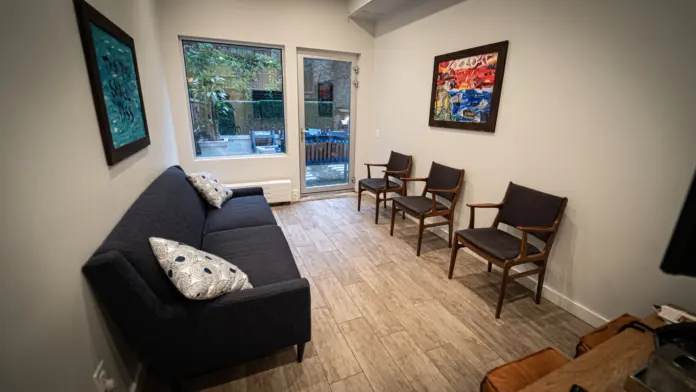
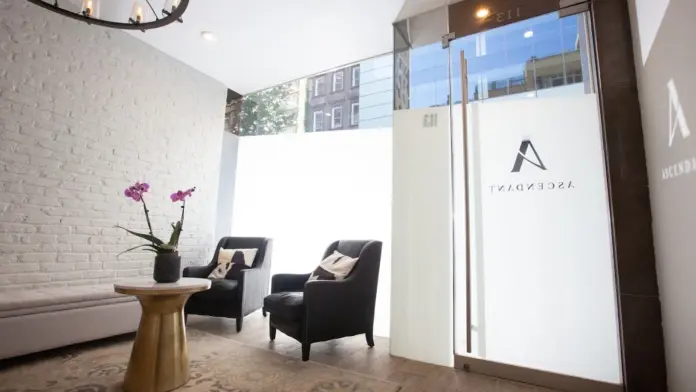
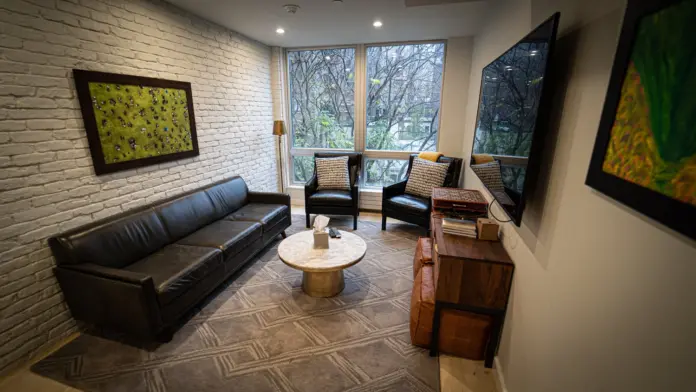
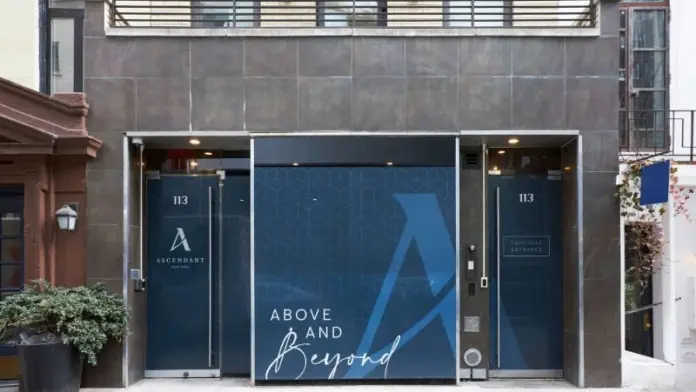
| |
New York City, NY | This facility offers outpatient detox, an intensive outpatient program, and outpatient dual-diagnosis treatment for adults. This outpatient medical detox program helps rid substances like alcohol, opioids, and benzodiazepines from the body safely. Vivitrol is used as an opioid receptor blocker that aids in restoring normal brain function and reduci | Treatments Programs Payment Options | Parallax isa great or death on beef by
Ian Thomson
8 months ago
Parallax Center saves my life. I enjoyed my groups and all employees are helpful but Nazra is always there to help us get on to the group and always checking on us if we need more coffee and snacks. If you need to have back your life come to Parallax Center.
Robert Kennedy
1 year ago
Parallax Center is a place where you immediately feel safe, welcome, and like part of a family. The entire staff is incredibly friendly and helpful, always showing genuine care to ensure that patients receive the best treatment possible. A special thank you to Nazra for always making sure we have plenty of coffee and snacks for our groups!
pyro cbs
1 year ago
| 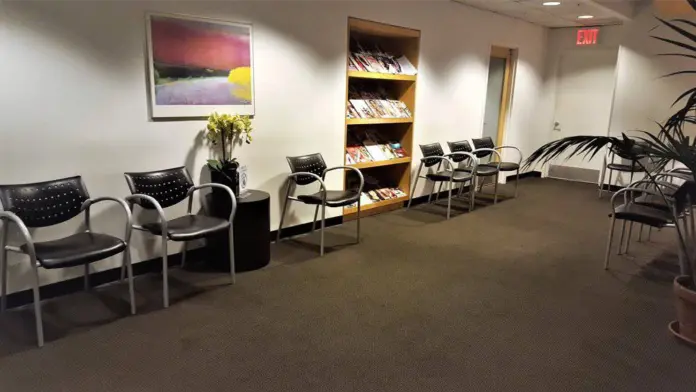
2 
| |
New York City, NY | The Bridge is an outpatient program in New York City, New York. They provide adults and seniors with highly trained staff to help you overcome addiction and manage co-occurring mental health conditions. You work directly with a caring staff member to develop a structured plan tailored to meet your needs. The outpatient program includes mental hea | Treatments Programs Payment Options | Got me feeling like a Thunda Dragon
Juan
11 months ago
the best (period)
Justin Casanova
1 year ago
‘Hurt People , Hurt People’. I needed a free therapist and was able to have 5 intake sessions with a pleasant young woman. I benefited from these sessions as it is always rewarding when we analyze and acknowledge what is going on in our lives. So much was happening for me and I was not able to attend all the assigned sessions. Management was not able to communicate in a responsible or mature manner; I wonder maybe they too are prior clients who have graduated but do not have a total grip on their situation and sometimes need help themselves. My very pleasant intake person became insensitive, cold, ‘passive aggressive’ and quite non communicative. I lead the conversation and realized that I was being ‘expelled’. I really don’t know the reason as I do believe she has her own issues and the Leadership is not of a strong foundation with knowledge of servicing a diverse clientele. Such a shame because this has the potential to be a top notch program in a great community. I only wish I was able to find an experienced, strong, qualified leadership that is familiar with diversity and respect. I was feeling hurt as this was the second time I had to deal with leadership’s lack of sensitivity. It should not be just a JOB when people come to you for help. Fix the structure of this place.
Claudette Brown
2 years ago
| 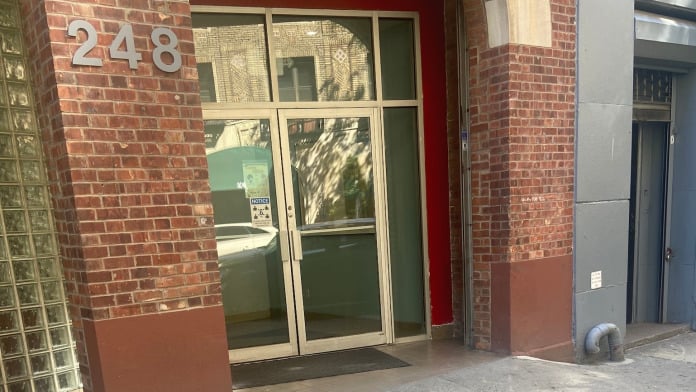
| |
New York City, NY | Lower Eastside Service Center – Gouverneur Slip East is a drug and alcohol rehab center in New York, New York. They provide opioid treatment programs, co-occurring disorder treatment, supportive housing, and vocational training. Addiction-related services at this facility include inpatient and outpatient opioid use disorder treatment, co-occurrin | Treatments Programs Payment Options | I went to su casa in 1985 no friends family or home 12 months later I left clean with a purpose in life still clean 39 years
jose sanchez
7 months ago
I don't know what this place is like now but I can tell you 30 years ago when I was a homeless addict, I came to try and get clean This program works it's not easy but neither is being on the street looking for money to get high. This is the program where you go when you have no friends no family no money and no insurance. It's no frills but it's clean they feed you and you get to learn how to live drug free with other people. I think we should invest in more places like this one. I Felt I had to add this after reading some other reviews yes this place is a very old building part of our job as we got clean was also to do the daily chores of keeping Our house clean. I don't know about some of the other people who were there but I was literally sleeping either on the trains or just in the street somewhere so This place was a step up for me. 🙏🏻 greatful every day.
chuck magana
8 months ago
Un Lugar muy bueno y lo recomiendo yo soy parte de esa programa y me gradue
Warren Rodriguez
1 year ago
| 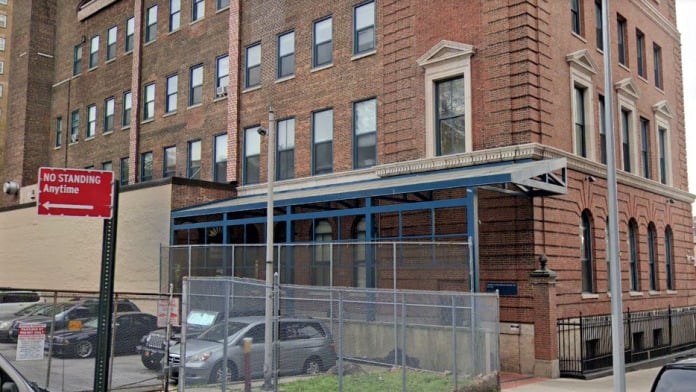
| |
New York City, NY | The New York Center for Living is dedicated to one purpose; helping young people and their families work through the web of problems caused by the use and abuse of addictive substances, both legal and illegal. New York Center for Living integrates conventional and complementary therapeutic services to provide a holistic, individualized environment | Treatments Programs Payment Options | NYCFL helped me rebuild my life. I had been through other programs in NYC and New Jersey before, but this was the first place that really saw me as a whole person—not just a diagnosis. The groups were real, the staff genuinely cared, and for the first time, I felt like I wasn't being judged for my choices. Therapy here wasn’t just about talking; we painted, we did yoga, we went to improv - I connected with people who I had so much empathy for which in turn allowed me to have empathy for myself. I’m now over two years sober, I've held down a job for over a year and a half, my family is proud of me and I'm actually excited about my future.
Laura Jacobson
6 months ago
Outstanding Care and Compassionate Staff
New York Center for Living is truly a top-tier treatment center for adolescents and young adults struggling with mental health and substance use challenges. From the moment you walk in, you feel a sense of warmth and genuine care from the staff. Their team of clinicians is highly skilled, compassionate, and deeply invested in the well-being of every client.
What sets NYCL apart is their individualized approach, blending evidence-based therapies with a supportive, family-focused environment. The facility is well-maintained, creating a safe and welcoming space for healing. They also prioritize education and relapse prevention, ensuring that clients leave with the tools needed for long-term success.
If you’re looking for a place that truly understands young people and provides comprehensive, high-quality care, I highly recommend New York Center for Living. Their dedication to making a difference is evident in everything they do!
Rudy Novak
1 year ago
My experience has been great here, the staff is wonderful and they pay close attention to you and your needs. I have learned a lot during my time here and met some amazing people!
Annabelle Lynch
1 year ago
| 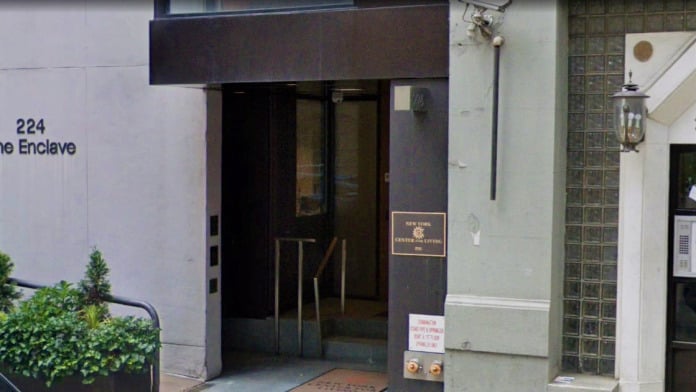
2 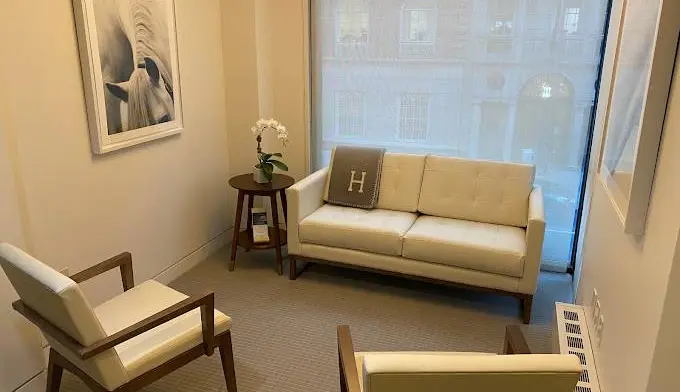
| |
Never Alone – Adolescent Addiction Treatment CenterAd This is an ad and Never Alone – Adolescent Addiction Treatment Center is a paid advertiser. Paid advertisers may be listed first in search results. This ad may contain content provided by the advertiser. Rehab.com does not verify ad content or any reviews that are displayed. Learn More Hurley, NY | Never Alone is an alcohol and drug rehab center for adolescents located in Hurley, New York. They provide residential treatment services to help you overcome your addictions and find hope on the other side. Teens experience a lot of changes that can be stressful and confusing. Unfortunately, sometimes this leads them to abuse drugs and alcohol. Lo | Treatments Programs Payment Options | View Website (845) 219-5016 | Never Alone – Adolescent Addiction Treatment Center has no reviews yet. Leave a review.
| 
29 29 

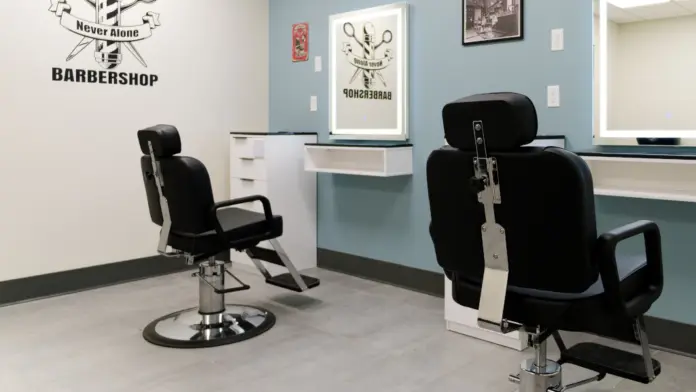

|
New York City, NY | Gotham Health Sydenham in New York, New York, provides a variety of services such as adult medicine, behavioral health, and pediatrics. The facility provides intensive outpatient programs and integrated outpatient services. Discounted fees are offered for those who don’t have health insurance. Mental Health Treatment To Support Addiction Recover | Treatments Programs Payment Options | I have been going to this clinic since my first pregnancy 7 years ago. I loved the doctors there, the front desk staff are amazing most of the time. The nurses and doctors assistant are great. I just started taking my child to the dentist there that was good too. I will recommend them to anyone.
Sally Abreu
2 months ago
I would like to express my sincere gratitude to Erick Acevedo for his professionalism and assistance. He was like an angel who appeared at a very difficult moment for me and managed to help. I highly recommend his professionalism and truly appreciate everything he did for me — his help speaks for itself.
Donka Todorova
6 months ago
While attending a program at the Harlem Parish next door, my mother of 91 had an non-emergency, urgent situation. We entered the facility not knowing what to expect. We were greeted with upmost respect and kindness. From the security detail at the door to the 2 receptionists at the window, these wonderful people worked collectively to get us what we need to attend the program comfortably. I am so thankful for the kindness and compassion that was extended to us.
Helen Vance
1 year ago
| 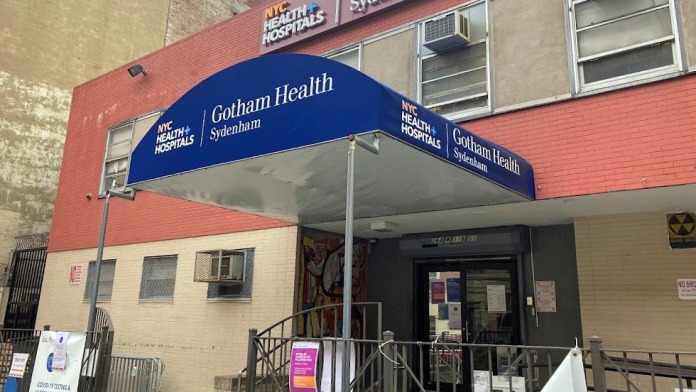
| |
New York City, NY | BRC–Chemical Dependency Crisis Center–CDCC is a comprehensive drug and alcohol rehab for homeless adults in New York, New York. They provide dual diagnosis care, crisis intervention services, medically supervised detox, and inpatient, outpatient, and aftercare services. Specialized programs for young adults and persons living with HIV/AIDS are | Treatments Programs Payment Options | Shelteracism
Madee Reed
4 months ago
This non profit helps people, good company to volunteer for to give back.
Ahmad Al-Tarifi
6 months ago
Doing good in the community
Gerald Edwards
6 months ago
| 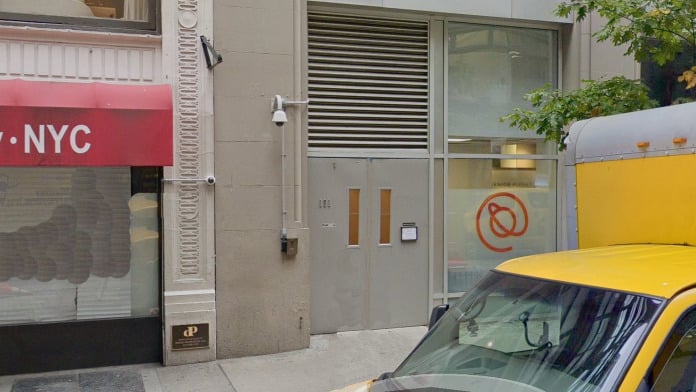
2 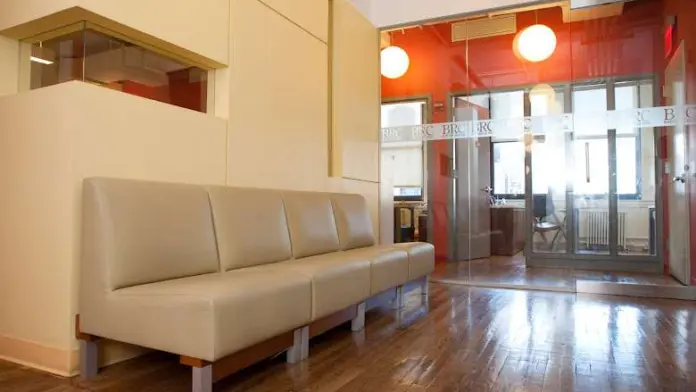
| |
New York City, NY | NYC Health + Hospitals / Bellevue, located in Bronx, New York is a non-profit alcohol and drug rehab that offers treatment for a variety of substance abuse addictions including alcoholism, co-occurring mental health disorders, and opiate addiction. They offer residential care providing long term support for addiction recovery, as well as flexible o | Treatments Programs Payment Options | My new doctor Sorry, forgot.Her name was very professional.And kind to me , i'm happy to have her on my team
Cynthia Lopez
2 months ago
Excelente lugar muy bien organizado y el personal muy agradable.
Elena torres
2 months ago
I had 8 session of medical acupuncture and this helped me alot from the numbness and pain from the second surgery and it boost my body and I would like to thank all the medical team for doing this to me and to others patients and thanks Dr. Wu i hope can continue medical acupuncture.
mark nepomuceno
2 months ago
| 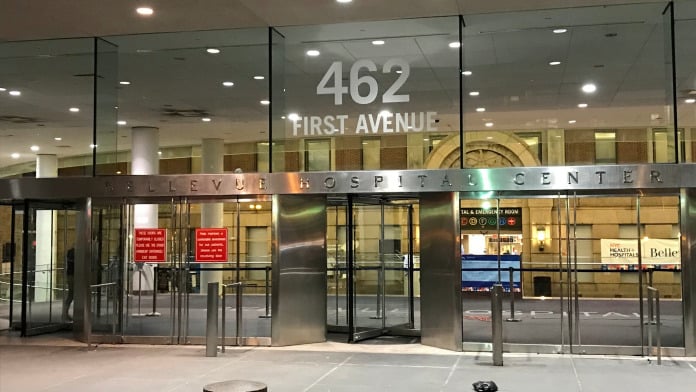
| |
New York City, NY | Care Counseling Center, located in New York City, New York is a private alcohol and drug rehab that offers treatment for a variety of substance abuse addictions including alcoholism and opiate addiction. They offer flexible outpatient addiction therapy allowing patients to live at home while receiving regular treatment. Additional levels of care of | Treatments Programs Payment Options | I was nervous at first, but the therapist created a calm environment that made opening up easy. Instead of feeling judged, I felt supported and uplifted. It changed how I see myself and my relationships.
Jessica Fernandez
3 months ago
The best program offers expert counseling supportive and caring environment. Highly recommended!
Mukhammad Kurbonov
5 months ago
Excellent service, highly recommended!
Makhsudjon Makhsudov
6 months ago
| 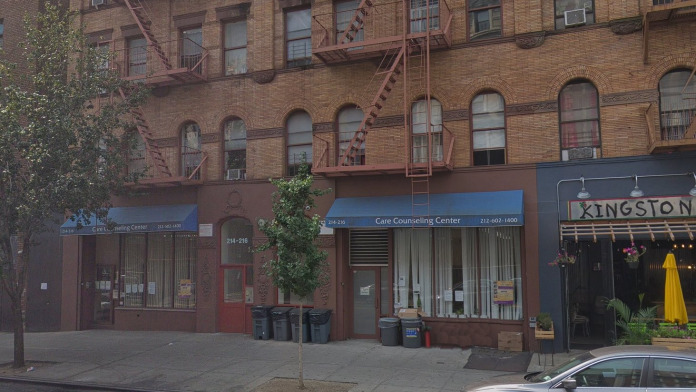
| |
New York City, NY | Caron New York Recovery Center is a facility that offers a large range of services designed to help individuals and families who might be affected by substance use disorders. I like that they take a holistic approach to address the addiction and relapses. They give you family support as well as ongoing care even after the treatment is over. I was a | Treatments Programs Payment Options | Caron New York has no reviews yet. Leave a review.
| 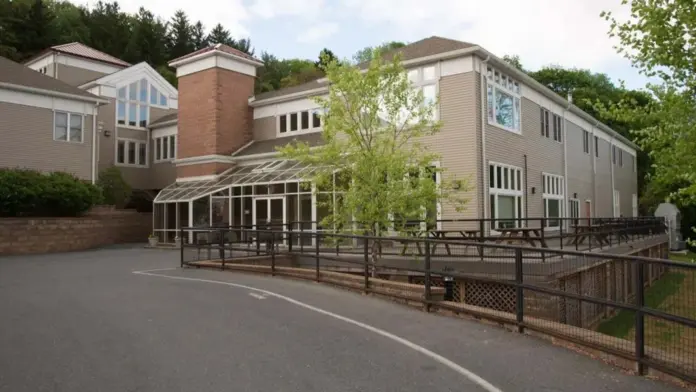
5 5 
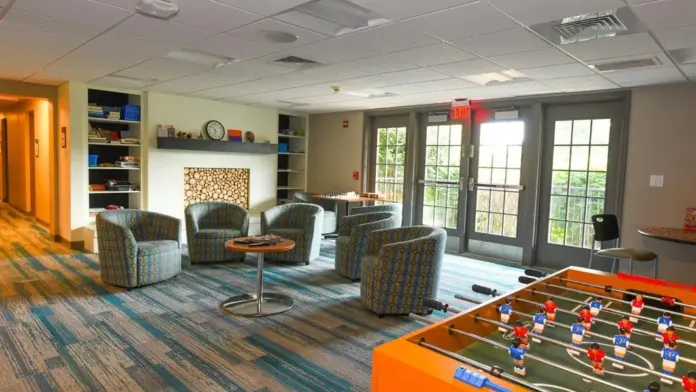
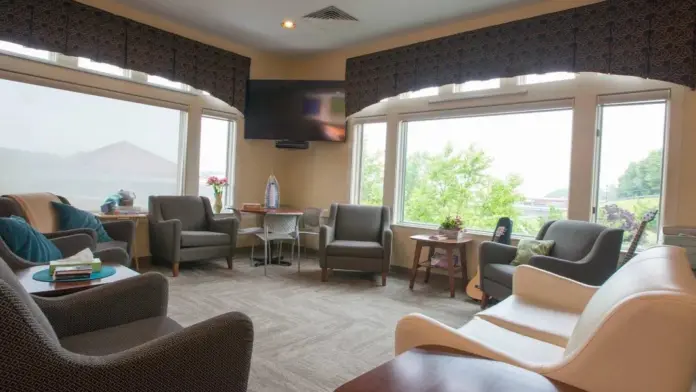

| |
New York City, NY | Lenox Hill Hospital’s Inpatient Psychiatric provides inpatient and outpatient behavioral health services. You’ll find them situated on East 77th Street in New York City, New York. Their professional staff can address and treat co-occurring mental health and substance use disorders. They’re located near Central Park and the Museum Mile. Ne | Treatments Programs Payment Options | Marvellous service!
salata rosalee
3 months ago
Great 👍
Leba Ward-Didier
3 months ago
Checked every box.
Casey Brewitt
3 months ago
| 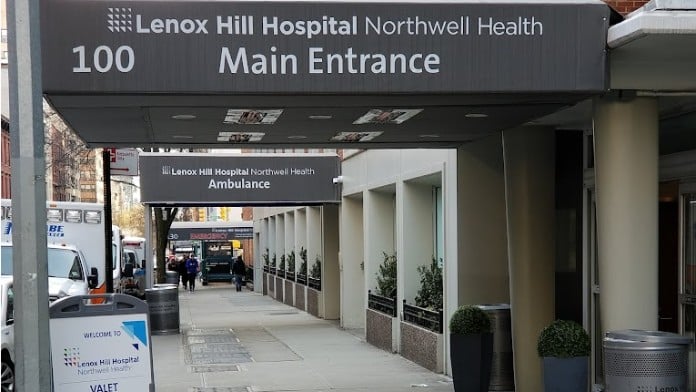
6 6 
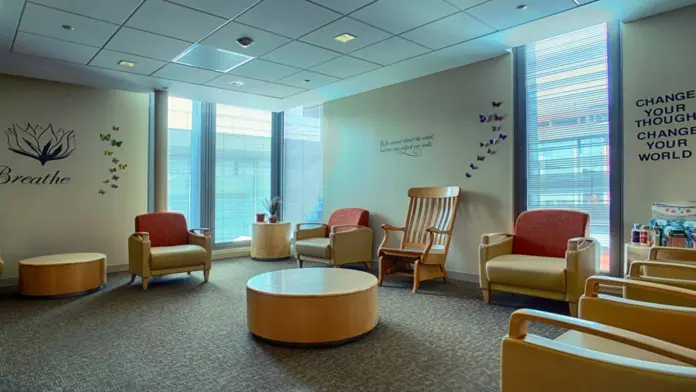
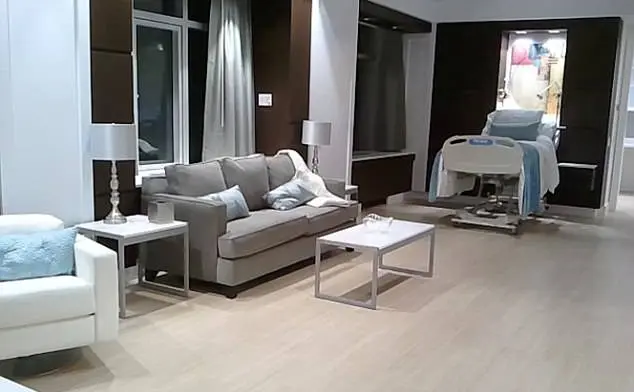
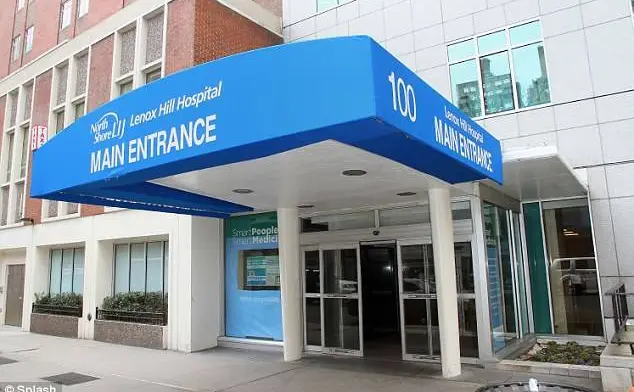
| |
Avenues Recovery Center at Prince FrederickAd This is an ad and Avenues Recovery Center at Prince Frederick is a paid advertiser. Paid advertisers may be listed first in search results. This ad may contain content provided by the advertiser. Rehab.com does not verify ad content or any reviews that are displayed. Learn More Prince Frederick, MD | Avenues Recovery Center at Prince Frederick, in Prince Freferick, Maryland, is an alcohol and drug rehab center offering levels of care including medically assisted detox, outpatient treatment, a partial hospitalization program, an intensive outpatient program, medication assisted treatment, an inpatient residential program and aftercare. Treatment | Treatments Programs Payment Options | View Website (410) 535-8930 | Avenues Recovery Center at Prince Frederick has no reviews yet. Leave a review.
| 
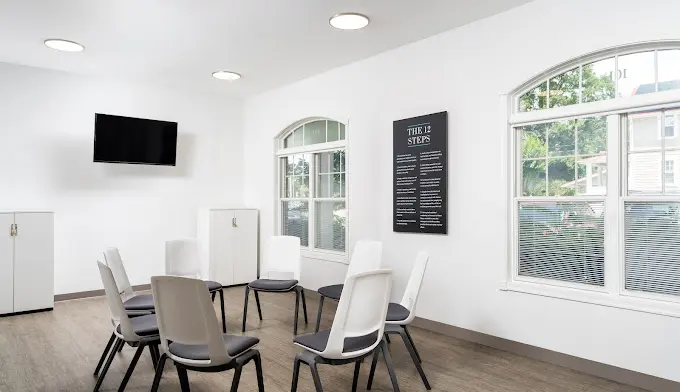
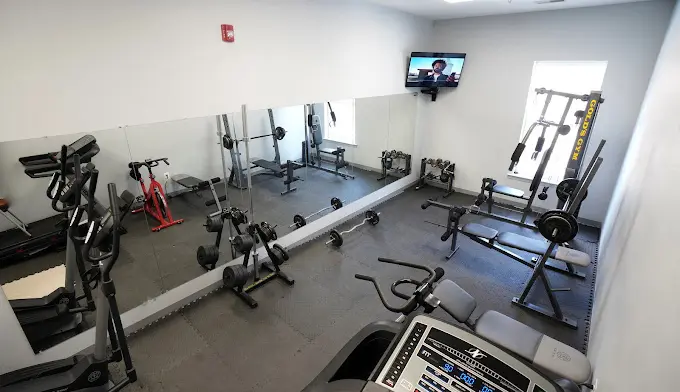
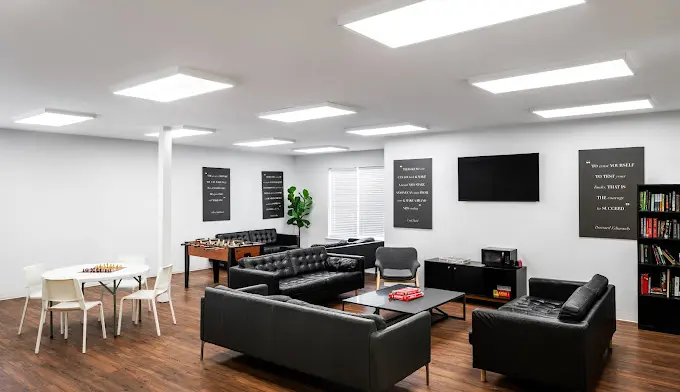
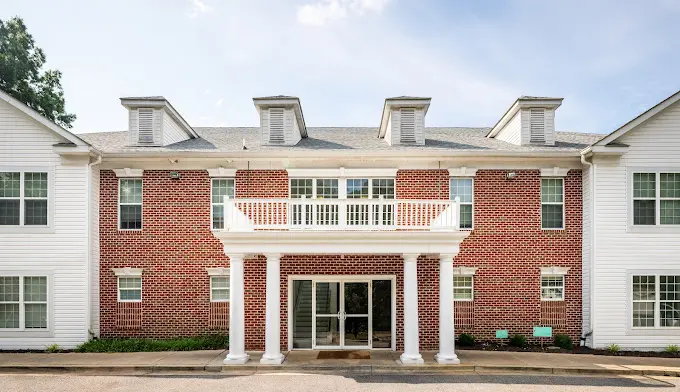
|
New York City, NY | Bellevue Hospital Center–Detoxification Services, is a drug and alcohol rehab for adults in New York, New York. They offer medically supervised detox inpatient care, and aftercare services. Dedicated programs for young adults and persons with hearing impairment are available. Bellevue Hospital Center–Detoxification Services, in New York, New | Treatments Programs Payment Options | My new doctor Sorry, forgot.Her name was very professional.And kind to me , i'm happy to have her on my team
Cynthia Lopez
2 months ago
Excelente lugar muy bien organizado y el personal muy agradable.
Elena torres
2 months ago
I had 8 session of medical acupuncture and this helped me alot from the numbness and pain from the second surgery and it boost my body and I would like to thank all the medical team for doing this to me and to others patients and thanks Dr. Wu i hope can continue medical acupuncture.
mark nepomuceno
2 months ago
| 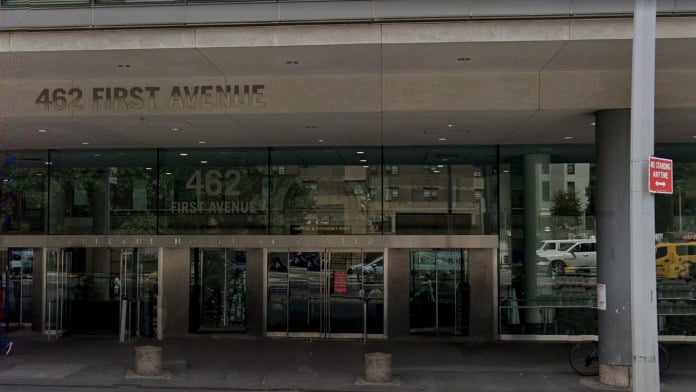
| |
New York City, NY | In New York, New York, NYC Health + Hospitals/Gotham Health, Gouverneur, offers comprehensive mental healthcare services. Located on Manhattan’s Lower East Side (LES), the clinic serves not only adult men and women, but also offers treatment for children and adolescents experiencing a range of mental health issues. Programs That Reflect Neig | Treatments Programs Payment Options | Staff was very helpful
Larry L
2 years ago
Fastest lines..since there aren't any.great staff.caring.work hard. Hands down best mmtp clinic i have ever been to and i hsve been to
Ann Gross
8 years ago
I'm
Devanette Richardson
11 years ago
| 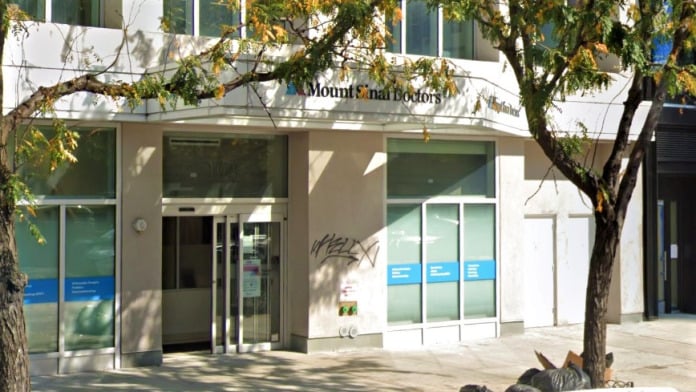
| |
New York City, NY | Gracie Square Hospital – Inpatient, located in New York City, New York is a private alcohol and drug rehab that offers treatment for a variety of substance abuse addictions including alcoholism, co-occurring mental health disorders, and opiate addiction. They offer supervised medical treatment to safely manage withdrawal symptoms during detoxific | Treatments Programs Payment Options | I feel okay because the staffs had helped me when I was struggling with so much anxiety and depression. I like how I have a conversation with the staffs when I really to let it out and journal. Judy , Danielle , Gabriel , Carlos , and Giulia has been a wonderful nurses to me I’m glad to have that conversation about the things I need.
Estrella Thoughts
3 months ago
This review is overdue and important, for me to share how great an experience we had receiving mental health treatment and support for my son at Gracie Square Hospital. The entire staff throughout the facility especially on the fourth floor unit are very professional and kind. My son is doing so much better. Having a family member who is experiencing mental health challenges can be very frightening and overwhelming, taking them to the right place makes a world of difference. I am so grateful for their service and highly recommend Gracie Square Hospital at NYP for mental health care. Thank you Dr. Dole and your team. 🙏🏼
Clarita
3 months ago
I was extremely hesitant to send my daughter to Gracie Square after reading many negative reviews, but our experience was truly a 10 out of 10.
Security was exceptional. They were professional, respectful, and made us feel comfortable immediately. Her social worker, Sylvie, was incredibly thorough with discharge planning and kept me informed every step of the way. Her nurse practitioner, Katherine, was compassionate, attentive, and genuinely invested in my daughter’s well-being.
Both providers listened to my concerns at a time when I felt no one else was listening, and that meant more than I can express. Their support and responsiveness helped us feel safe and understood during a very stressful moment.
The nurses in the unit were incredibly kind. When I called at night to check on my daughter, they were always polite, patient, and reassuring.
One important suggestion for anyone writing reviews: please mention the unit you or your loved one was on. I believe Gracie Square has four different units, and reviews often don’t specify which one they refer to. It makes it difficult to understand the context of each experience because the units can vary. My daughter was on the 4th floor unit
I am truly grateful for the care my daughter received, and I believe the staff on her unit deserve to be recognized.
TL
3 months ago
| 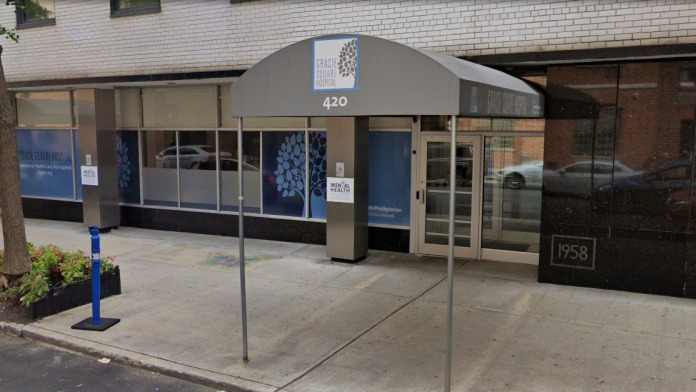
| |
New York City, NY | LaFayette Medical Approach – Outpatient is an outpatient opiate treatment program located in New York City, New York. They have been providing care for over 50 years and specialize in treating opioid dependence. They offer opioid counseling with discretion and confidentiality. They also provide medication-assisted treatment using methadone and bu | Treatments Programs Payment Options | You know, seeing a 4.4 star rating on anything to do with addiction, is a flat out miracle. Addicts are some of the whiniest, hardest people to please. So the rating itself should be a testament. I’ve been in this program for a few years now, even commuting from white plains. That’s how much I love it. The staff is so special, they all care about the patients in a way that is unparalleled in this industry. I’ve had every opportunity to switch clinics, I never will until my last day on methadone. Thanks a million <3
Ryan
1 year ago
Best Meds,Best counselors,Best treatment
SAMMY LOVE (TEX)
1 year ago
Nurses are great!!! My only complaint woukd be i havent had a steady counselor since august when i tranferred there. But all my needs met through supervisors and nuses and the N.P.is a terrific woman. So my needs are met .100% T.Y.
Robert r
1 year ago
| 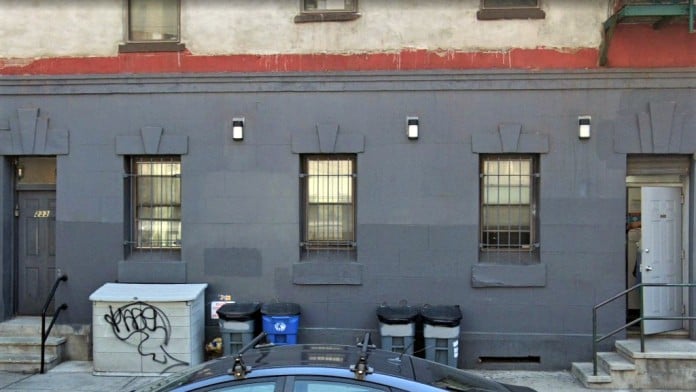
|

New York City is the 15th most expensive city nationwide for addiction treatment affordability, with an average cost of addiction treatment of $63283. This is higher than the average cost of $56653 for addiction treatment in New York and higher than the national average cost for drug rehab of $57,193.
The costs of drug and alcohol rehab in New York City vary widely and depend on several factors, including:
The costs of addiction treatment listed for cities and states are averages based on the cost of medical detox, inpatient rehab, outpatient rehab, and medication assisted treatment. These averages are high due to the cost of medical detoxification and residential inpatient rehab programs.
These numbers also reflect the raw cost of drug rehab, before any insurance coverage. The typical individual seeking addiction treatment can expect to pay much less for outpatient or intensive outpatient services than the averages listed below.There are many ways to pay for drug rehab in New York City. Most rehab treatment centers accept cash or self-payment, as well as private health insurance. However, there are many treatment centers in New York City that accept Medicaid and Medicare, or offer sliding scale payments or other low-cost payment options. Here's the complete breakdown of how to pay for addiction treatment near New York City.
Aetna is the most widely-accepted insurance for drug rehabs in New York City, with 44 treatment centers in the city accepting their insurance. Blue Cross Blue Shield is the 2nd most popular with 43 treatment centers accepting it followed by UnitedHealth Group in 3rd accepted by 42 drug rehabs.
New York City has the 377th highest rate of drug use nationwide among nearly 400 cities surveyed. This number reflects the combined use of cocaine, heroin, meth, and marijuana, displayed individually below. The percent shown for each drug represents the number of residents in Queens county that have reported ever using the following drugs, so these numbers should not be interpreted as direct evidence of current drug use in New York City or Queens county as a whole.
All values are per 100,000 population.
Source: https://cde.ucr.cjis.gov/LATEST/webapp/#/pages/explorer/crime/crime-trend